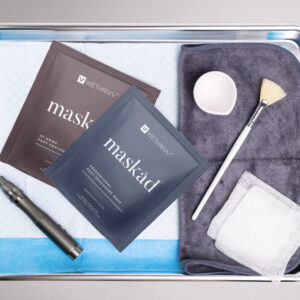
Aesthetic Skincare vs. Medical Skincare: What’s the Difference?
In the vast world of skincare, two terms often pop up: aesthetic skincare and medical skin care. While both are aimed at achieving healthy, radiant skin, they serve different purposes and come with distinct approaches. In this blog post, we will explore the differences between aesthetic skincare and medical skincare, helping you understand which one might be the best fit for your skincare needs.
Aesthetic Skincare: The Basics
Aesthetic skincare, also known as cosmetic skincare, primarily focuses on enhancing the appearance of the skin. Here’s what sets it apart:
1. Non-Invasive
Aesthetic skin care treatments are typically non-invasive and do not require surgery. They include procedures like facials, chemical peels, microdermabrasion, and laser therapy. These treatments aim to improve skin texture, tone, and overall appearance.
2. Performed by Aestheticians
Aesthetic treatments are usually performed by licensed aestheticians or skincare professionals. They have in-depth knowledge of skincare products and procedures designed to enhance your skin’s aesthetics.
3. Focus on Surface-Level Concerns
Aesthetic skincare is ideal for addressing surface-level concerns such as fine lines, wrinkles, uneven pigmentation, and mild acne. It is often used for maintenance and preventative care.
4. Minimal Downtime
Most aesthetic treatments have minimal downtime, allowing you to resume your daily activities immediately or shortly after the procedure.
Medical Skincare: The Essentials
Medical skincare, on the other hand, is a branch of dermatology that deals with diagnosing and treating skin conditions and medical issues. Here’s what makes it unique:
1. Medically Supervised
Medical skincare is overseen by board-certified dermatologists or medical professionals with specialized training in skin health. They have the expertise to diagnose and treat various skin conditions.
2. Medical Procedures
Medical skincare often involves medical procedures like Botox injections, dermal fillers, laser resurfacing, and chemical peels. These treatments can address moderate to severe skin issues, including skin cancer, cystic acne, and psoriasis.
3. Focus on Medical Conditions
The primary focus of medical skincare is to diagnose and treat medical skin conditions. It goes beyond aesthetics to manage and cure skin diseases, infections, and chronic skin problems.
4. Potential for Downtime
Some medical skincare procedures may involve downtime, especially when surgical interventions or intensive treatments are required. Recovery times vary depending on the procedure’s complexity.
Which One Is Right for You?
The choice between aesthetic skincare and medical skincare depends on your specific needs and goals:
– If you’re looking to improve your skin’s appearance, address mild concerns, or simply pamper yourself, aesthetic skincare may be the right choice.
– If you have serious skin issues, or medical conditions, or are seeking treatments with a more profound impact, consulting a board-certified dermatologist for medical skincare is essential.
Conclusion
Both aesthetic skincare and medical skincare have their place in the world of skincare. The key is to understand your unique skin needs and goals and consult with a skincare professional to determine the best approach. Whether you’re looking to enhance your skin’s aesthetics or treat medical conditions, there are tailored solutions available to help you achieve healthy, radiant skin.
Recommendation to read:





